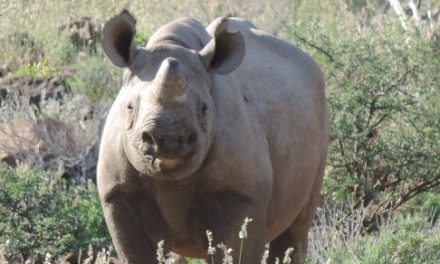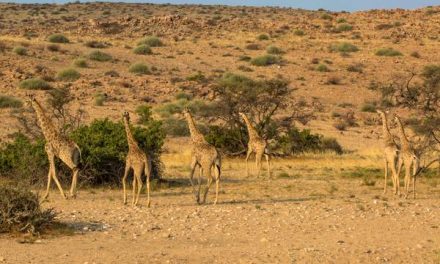
Biodiversity for sustainable development
A statement from the Ministry of Environment and Tourism looks at the importance of conserving biodiversity in the broadest sense of its definition.
“As countries around the world observe International Biodiversity Day on Friday, 22 May 2015, all fellow citizens of Namibia are encouraged to show their support to the conservation of Namibia’s biodiversity not only on this important day, but as a way of life. In so doing, we acknowledge the fact that humanity’s fate is tightly linked with biological diversity – the variety of life on earth – and is essential for sustainable development and human well-being.”
Announcing Biodiversity Day, Mr Ferdinanc Mwapopi of the Department of Environmental Affairs in the Ministry of Environment and Tourism said “This year’s theme “Biodiversity for Sustainable Development” succinctly reflects the importance of biological diversity to the socio economic development of Namibia, adding that biodiversity is a vital asset to the economy.
Citing various examples, he said “wild animals attract tourists and are important to the agricultural sector; marine creatures are the backbone of Namibia’s fisheries sector; and extracts from Namibian plants are used in dietary products. Food production depends on biodiversity and the services provided by ecosystems, while the secure supply of clean water also depend on biodiversity.”
Biodiversity and ecosystem functioning provide goods and services essential for human health, including nutrients, clean air and water and control of pests and diseases. Biodiversity is the basis for sustainable livelihoods with 70% of the population being economically dependent on biodiversity.
Traditional knowledge associated with biodiversity is also important and has considerable value not only to those who depend on it in their daily lives but to modern industry and agriculture as well. Biodiversity is also the cornerstone of the work, belief systems and basic survival of many women while it plays a major role in mitigating climate change by contributing to long-term sequestration of carbon in a number of biomes. Even the built environments of local cities and towns are linked to and affected by biodiversity.
On the question of how every Namibian can contribute to conserving biological diversity, the ministry advises, “* Drive less, walk more; * Avoid using plastic bags or re-use them; * Install at least one CFL or LED light bulb in your home today; * Turn off lights in empty rooms and make sure your geyser’s thermostat is set at 55 degrees; * Tell everyone at home, school, place of worship and work about what you are doing to conserve biodiversity and ask them to join you; * Use water sparingly – take shorter showers, don’t let the tap run when you are washing your hands; or brushing your teeth; don’t water your garden during the hottest time of the day.”
Soil is critical for life and the basis of our nation’s agriculture which provide us with feed, food and fuel. It however loses these abilities due to intensive crop farming; overgrazing; soil pollution; and the removal of vegetation. In the regards, the following advice is offered: “Rotate the crops you plant to manage the nutrients lost from the soil; plant trees and plants that occur naturally in Namibia and that do not need a lot of water; Above all, do not waste – reduce your consumption, buy only what you really need, and re-use and recycle whatever and whenever you can.”
“By protecting our national biodiversity, we protect Namibia’s economy now and in future, for generations to come.”
The United Nations proclaimed May 22 the International Day for Biological Diversity (IDB) to increase understanding and awareness of biodiversity issues. When first created by the Second Committee of the UN General Assembly in late 1993, 29 December (the date of entry into force of the Convention of Biological Diversity), was designated The International Day for Biological Diversity. In December 2000, the UN General Assembly adopted 22 May as IDB, to commemorate the adoption of the text of the Convention on 22 May 1992 by the Nairobi Final Act of the Conference for the Adopted of the Agreed Text of the Convention on Biological Diversity. This was partly done because it was difficult for many countries to plan and carry out suitable celebrations for the date of 29 December, given the number of holidays that time of year.










































